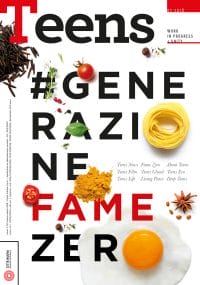
Feb 26, 2018 | Focolare Worldwide
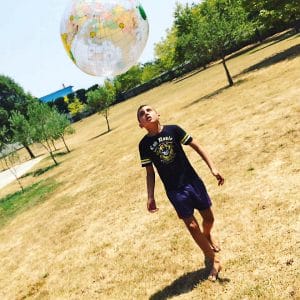 Seventeen sustainable development goals have been identified to be achieved by 2030. They are contained in the UN Agenda approved by the 193 UN member states. “Zero Hunger,” which is at the centre of an agreement signed in 2012 during a United Nations Conference in Rio de Janeiro, aims to free the world from hunger. In response to a request for collaboration sent by the United Nation’s agency, the young people and teenagers of the Focolare Movement decided to step onto the field alongside the FAO, in raising awareness among the generation that we hope will see world hunger defeated. World hunger has been on the rise again for more than a decade. It was recently reported on by the Annual United Nations Report of food safety and nutrition in the world (2017). In 2016, around 815 million people (38 million more than the year before), that is, 11% of the world population, was not sufficiently nourished. Around 155 million children under the age of five are underdeveloped (too short for their age), while 52 million suffer from chronic hunger, which means that their weight is not adequate to their height.
Seventeen sustainable development goals have been identified to be achieved by 2030. They are contained in the UN Agenda approved by the 193 UN member states. “Zero Hunger,” which is at the centre of an agreement signed in 2012 during a United Nations Conference in Rio de Janeiro, aims to free the world from hunger. In response to a request for collaboration sent by the United Nation’s agency, the young people and teenagers of the Focolare Movement decided to step onto the field alongside the FAO, in raising awareness among the generation that we hope will see world hunger defeated. World hunger has been on the rise again for more than a decade. It was recently reported on by the Annual United Nations Report of food safety and nutrition in the world (2017). In 2016, around 815 million people (38 million more than the year before), that is, 11% of the world population, was not sufficiently nourished. Around 155 million children under the age of five are underdeveloped (too short for their age), while 52 million suffer from chronic hunger, which means that their weight is not adequate to their height. 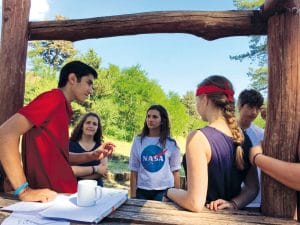 At the same time, because of a lack of healthy nourishment, 600 million people (including 41 million children) suffer from obesity, which is another face of malnutrition. The Report identified armed conflicts as the main cause of the migrations and of the shocks linked to climate change, as several of the key factors of the re-escalation of hunger and the many forms of malnutrition. Freeing the world of hunger will require urgent measures and decisions in favour of more sustainable lifestyles – from the consumer society to a change of course in international politics. But first it requires a stronger awareness and change in personal relationships. This is the message that the Focolare’s Teens for Unity and Youth for a United World have been spreading since last year along with several of their global-level projects: the need for study and becoming aware of the root causes of the problem; observing and monitoring the situation at the local level and involving as many young people, teenagers and associations as possible in: communicating and sharing experiences of working for the poor in their own local environments, for a more sober lifestyle, for dialogue, peace, the environment, welcoming immigrants, and, finally, their proposal to hold world-wide celebrations on the day chosen by the United Nations to be dedicated to the topic of nutrition (October 16).
At the same time, because of a lack of healthy nourishment, 600 million people (including 41 million children) suffer from obesity, which is another face of malnutrition. The Report identified armed conflicts as the main cause of the migrations and of the shocks linked to climate change, as several of the key factors of the re-escalation of hunger and the many forms of malnutrition. Freeing the world of hunger will require urgent measures and decisions in favour of more sustainable lifestyles – from the consumer society to a change of course in international politics. But first it requires a stronger awareness and change in personal relationships. This is the message that the Focolare’s Teens for Unity and Youth for a United World have been spreading since last year along with several of their global-level projects: the need for study and becoming aware of the root causes of the problem; observing and monitoring the situation at the local level and involving as many young people, teenagers and associations as possible in: communicating and sharing experiences of working for the poor in their own local environments, for a more sober lifestyle, for dialogue, peace, the environment, welcoming immigrants, and, finally, their proposal to hold world-wide celebrations on the day chosen by the United Nations to be dedicated to the topic of nutrition (October 16).  #ZeroHunger is now a regular feature of the Teens Magazine, published by Città Nuova in collaboration with the New Families Association, United World Association and the New Humanity Movement. The 2018 March-April edition will be dedicate to this topic. “What a thrill for our delegation,” write the teenagers on the editorial board, “to go into the headquarters of the FAO in Rome. Let’s get started right now so that our generation will truly be the first #GenerationZeroHunger. Teens Magazine will continue to follow this fascinating worldwide project.” The calendar shows April as the month for the publication of the Commitment Statement of the Teens for Unity, which was drawn up by teenagers from eleven countries. In May, the annual events for “United World Week” and “Run4Unity” will be entirely devoted to the topic. In June, a group of 600 children and teenagers (ages 9-12), attending an international congress of the Focolare Movement, will be the guests of the FAO for a morning of discussion and sharing on the topic. Finally, in the month of July, as part of the “United World Project” at Genfest 2018, a forum will be held on the theme #GenerationZeroHunger with the participation of the FAO. Chiara Favotti
#ZeroHunger is now a regular feature of the Teens Magazine, published by Città Nuova in collaboration with the New Families Association, United World Association and the New Humanity Movement. The 2018 March-April edition will be dedicate to this topic. “What a thrill for our delegation,” write the teenagers on the editorial board, “to go into the headquarters of the FAO in Rome. Let’s get started right now so that our generation will truly be the first #GenerationZeroHunger. Teens Magazine will continue to follow this fascinating worldwide project.” The calendar shows April as the month for the publication of the Commitment Statement of the Teens for Unity, which was drawn up by teenagers from eleven countries. In May, the annual events for “United World Week” and “Run4Unity” will be entirely devoted to the topic. In June, a group of 600 children and teenagers (ages 9-12), attending an international congress of the Focolare Movement, will be the guests of the FAO for a morning of discussion and sharing on the topic. Finally, in the month of July, as part of the “United World Project” at Genfest 2018, a forum will be held on the theme #GenerationZeroHunger with the participation of the FAO. Chiara Favotti
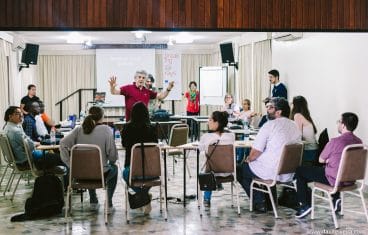
Feb 19, 2018 | Focolare Worldwide
 “Breaking Rays” is a play on the words “Breaking News” which are used to describe the interruption of some latest sensational news story. The sensational news this time was a project for the promotion of fraternity and a group of young communication workers who, with passion and skill, are stepping up to produce some maximum results. Breaking Rays aims at building an international network where experiences inspired by the charism of the Focolare Movement can come out of isolation and “break” onto the global scene, creating a widespread domino effect in other communities. Co-financed by the European Comission through the Erasmus+ and promoted by the international New Humanity Association in collaboration with CSC Audiovisual Centre, Italy, and other NGOs, the project is for young filmmakers and collaborators of the bi-monthly telephone CH Link-Up with news of the Focolare Community around the world. They already got through the first and second stages in Castelgandolfo, Italy, last July; and at Mariapolis Ginetta in San Paolo, Brazil on February 3-10. The next and final stage will take place concurrently with the Genfest, July 2018 in Manila, Philippines.
“Breaking Rays” is a play on the words “Breaking News” which are used to describe the interruption of some latest sensational news story. The sensational news this time was a project for the promotion of fraternity and a group of young communication workers who, with passion and skill, are stepping up to produce some maximum results. Breaking Rays aims at building an international network where experiences inspired by the charism of the Focolare Movement can come out of isolation and “break” onto the global scene, creating a widespread domino effect in other communities. Co-financed by the European Comission through the Erasmus+ and promoted by the international New Humanity Association in collaboration with CSC Audiovisual Centre, Italy, and other NGOs, the project is for young filmmakers and collaborators of the bi-monthly telephone CH Link-Up with news of the Focolare Community around the world. They already got through the first and second stages in Castelgandolfo, Italy, last July; and at Mariapolis Ginetta in San Paolo, Brazil on February 3-10. The next and final stage will take place concurrently with the Genfest, July 2018 in Manila, Philippines. 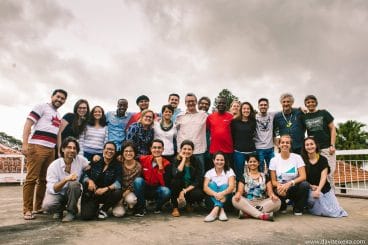 Twenty young people from different countries (Brazil, Italy Hungary, Indonesia, Philippines, India, Kenya and Burundi) have already arrived in Mariapolis Ginetta with a variety of skills, to be coordinated by professional tutors: Italian film director from RAI-TV, director of photography, Carlo Sgambato, project director, Kim Rowley from CSC audio-visuals, along with Isabela Reis, producer and curator of cultural audio-visual projects. With them there is also Paolo Cipollone from CSV Audiovisuals and coordinator of the project. Theoretical and practical training, along with experimenting with new techniques will alternate with work and a common life that will support a communion of talents and openness to constructive criticism. The group has made several visits to social projects of the region, making videos and interviewing. During other sessions, several experts in the field of communications (dreicting, television and radio journalism) have told their own experience and answered questions from the participants.
Twenty young people from different countries (Brazil, Italy Hungary, Indonesia, Philippines, India, Kenya and Burundi) have already arrived in Mariapolis Ginetta with a variety of skills, to be coordinated by professional tutors: Italian film director from RAI-TV, director of photography, Carlo Sgambato, project director, Kim Rowley from CSC audio-visuals, along with Isabela Reis, producer and curator of cultural audio-visual projects. With them there is also Paolo Cipollone from CSV Audiovisuals and coordinator of the project. Theoretical and practical training, along with experimenting with new techniques will alternate with work and a common life that will support a communion of talents and openness to constructive criticism. The group has made several visits to social projects of the region, making videos and interviewing. During other sessions, several experts in the field of communications (dreicting, television and radio journalism) have told their own experience and answered questions from the participants.  A unique experience in which to learn and go deeper into the profession of a journalist from a new perspective,” said Lewis from Burundi. “More than a course on film-making, powerful stories shared about how to make a better world,” said Donald from India. The team and experts helped me to develop an eye for detail and how to shatter stereotypes and cultural cliches, using audiovisuals.” Full-time tutor Isabela Reis from Brazil explains: “I think it’s a project we can be proud of. It was a strong experience that engaged us for eight days. It was useful for improving the ability to communicate among the young people. It was also important to discuss the various ways of taking advantage of the possibilities offered by technology.” Rafael from Brazil has been in Manila for several months helping to prepare the Genfest: “An important step towards Manila. It was beautiful to spend a whole week in contact with such incredible professionals. Their videos spread hope.” Kyle Venturillo from the Philippines: “We come from different parts of the world. We have different languages, cultures and personalities. In spite of this, we were able to establish a relationship of openness among us, which turned us into a family. We’re a group of people “a bit folly,” with different thoughts and perspectives, but with one main objective: to make this world more united.” Other participants in the project included: Starkmacher, Germany, Opus Mariae, Kenya, Focolare Ireland,, UJ Varos, Hungary, Pag-asa, Philippines, Civitas, Brazil, Focolare Society Bombay, India and YayasanDuniaBersatu, Indonesia. Chiara Favotti
A unique experience in which to learn and go deeper into the profession of a journalist from a new perspective,” said Lewis from Burundi. “More than a course on film-making, powerful stories shared about how to make a better world,” said Donald from India. The team and experts helped me to develop an eye for detail and how to shatter stereotypes and cultural cliches, using audiovisuals.” Full-time tutor Isabela Reis from Brazil explains: “I think it’s a project we can be proud of. It was a strong experience that engaged us for eight days. It was useful for improving the ability to communicate among the young people. It was also important to discuss the various ways of taking advantage of the possibilities offered by technology.” Rafael from Brazil has been in Manila for several months helping to prepare the Genfest: “An important step towards Manila. It was beautiful to spend a whole week in contact with such incredible professionals. Their videos spread hope.” Kyle Venturillo from the Philippines: “We come from different parts of the world. We have different languages, cultures and personalities. In spite of this, we were able to establish a relationship of openness among us, which turned us into a family. We’re a group of people “a bit folly,” with different thoughts and perspectives, but with one main objective: to make this world more united.” Other participants in the project included: Starkmacher, Germany, Opus Mariae, Kenya, Focolare Ireland,, UJ Varos, Hungary, Pag-asa, Philippines, Civitas, Brazil, Focolare Society Bombay, India and YayasanDuniaBersatu, Indonesia. Chiara Favotti
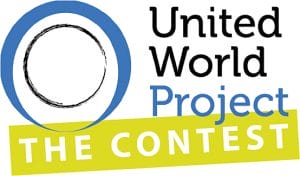
Feb 17, 2018 | Non categorizzato
 Since the deadline is set for 1 March, there is still time to participate in the #FraterniTALES contest organised by the United World Project, and become “United World Ambassadors.” The Ambassadors selected will cooperate with UNESCO’s National Commissions in the presentation of the good practices promoted during the United World Week in their respective countries. “Besides promoting peace actions and projects, the youths will have to show their talents in tracking down facts and choices for brotherhood,” explained Marco Desalvo, president of the NGO New Humanity, promoter of the contest, and the more extensive United World Project together with the Youth for a United World of the Focolare. Young people aged 18 to 24 may participate in the selection, and must have the skills, passion and interest in issues like universal brotherhood, global citizenship, sustainable development, education in human rights, functions of international institutions and ethical leadership. All the #FraterniTALES will be published on the contest’s Facebook and Instagram pages. The 30 most outstanding candidates will become true and proper spokespersons of the United World Project in their countries of origin after a training course to be held in two phases, the second of which will be at the Genfest in Manila. For information and sending of documents (video or text) see United World Project
Since the deadline is set for 1 March, there is still time to participate in the #FraterniTALES contest organised by the United World Project, and become “United World Ambassadors.” The Ambassadors selected will cooperate with UNESCO’s National Commissions in the presentation of the good practices promoted during the United World Week in their respective countries. “Besides promoting peace actions and projects, the youths will have to show their talents in tracking down facts and choices for brotherhood,” explained Marco Desalvo, president of the NGO New Humanity, promoter of the contest, and the more extensive United World Project together with the Youth for a United World of the Focolare. Young people aged 18 to 24 may participate in the selection, and must have the skills, passion and interest in issues like universal brotherhood, global citizenship, sustainable development, education in human rights, functions of international institutions and ethical leadership. All the #FraterniTALES will be published on the contest’s Facebook and Instagram pages. The 30 most outstanding candidates will become true and proper spokespersons of the United World Project in their countries of origin after a training course to be held in two phases, the second of which will be at the Genfest in Manila. For information and sending of documents (video or text) see United World Project
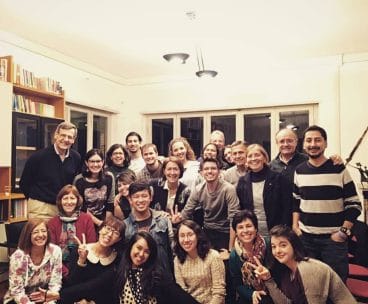
Feb 2, 2018 | Focolare Worldwide
 “I’m working in Italy working with some other young people my age for the upcoming 2018 Genfest in Manila.” Preparations are in full swing for the first Genfest ever held outside Europe. Nelson joined the international group of teenagers who were already at work, ever since he arrived in Italy in 2017 – first in Loppiano and then at the international Gen2 centre near Rome where we are interviewing him. “I come from El Salvador, the least expansive but most populated country in Central America. It’s a beautiful place, but has recently been hit by a civil war that lasted for 12 years and ended in 1992, leaving the country completely destroyed.” Nelson explains; “After the end of the war, many families found themselves looking for a place to settle and many parents emigrated, leaving their children with relatives or anyone who would take them in. But in the midst of the overall bewilderment, this resulted in an entire generation of boys and teenagers who were left without guidance or direction, or even anyone to show some genuine interest in them. To that was added the complication of getting the money earned outside the country to its destination in El Salvador. Many of these boys were left deprived of everything and began to leave school and roam the streets, seeking in delinquency the attention that they hadn’t found anwhere else. In short, recruiting adolescents, some of them quite young, they formed into many criminall groups who became more and more rooted and dangerous, each with its own name and symbolism, rituals and gestures.” “To uproot what seemed at first a simple problem to solve, the government launched a plan, which was also very violent, inprisoning anyone with a tatoo. The result was an unprecedented escalation of ferocious violence from the gangs that began to kill for no reason, to threaten more and more young people, forcing them into their groups. Before moving to Italy, I worked in San Miguel at a Salesian school which was dedicated to more than a thousand students who come from outside the city every week. Many of them have serious family problems, or parents enlisted in criminal groups, or even worse, they themselves are on the verge of joining. I taught physical education. One day, during swimming class, a boy wanted to jump into the pool without removing his shirt, even though that was against the rules. He was nervous and afraid. So I took him aside so that I could talk to him alone. I asked him the reason why. He told me that he had had himself tattooed with the symbol of a group, and didn’t want anyone to know. I gave him permissioin to get into the water with the shirt on, but afterwards, in class, I returned to the topic and we began to talk about ways of finding alternatives to criminality. Then, for the rest of the year, we tried to explain to him all of us together, that there’s always a way out, another way to live, far from violence. A few months later I saw him proudly wearing a work uniform, he had managed to leave the group which, thanks be to God had left him in peace. Now he’s providing for his family. ‘Thanks Prof. Thanks to all of you who helped me to realize that I could be a different person from what I started out to be. Thank you mostly for helping me to change the direction of my life.’” Chiara Favotti
“I’m working in Italy working with some other young people my age for the upcoming 2018 Genfest in Manila.” Preparations are in full swing for the first Genfest ever held outside Europe. Nelson joined the international group of teenagers who were already at work, ever since he arrived in Italy in 2017 – first in Loppiano and then at the international Gen2 centre near Rome where we are interviewing him. “I come from El Salvador, the least expansive but most populated country in Central America. It’s a beautiful place, but has recently been hit by a civil war that lasted for 12 years and ended in 1992, leaving the country completely destroyed.” Nelson explains; “After the end of the war, many families found themselves looking for a place to settle and many parents emigrated, leaving their children with relatives or anyone who would take them in. But in the midst of the overall bewilderment, this resulted in an entire generation of boys and teenagers who were left without guidance or direction, or even anyone to show some genuine interest in them. To that was added the complication of getting the money earned outside the country to its destination in El Salvador. Many of these boys were left deprived of everything and began to leave school and roam the streets, seeking in delinquency the attention that they hadn’t found anwhere else. In short, recruiting adolescents, some of them quite young, they formed into many criminall groups who became more and more rooted and dangerous, each with its own name and symbolism, rituals and gestures.” “To uproot what seemed at first a simple problem to solve, the government launched a plan, which was also very violent, inprisoning anyone with a tatoo. The result was an unprecedented escalation of ferocious violence from the gangs that began to kill for no reason, to threaten more and more young people, forcing them into their groups. Before moving to Italy, I worked in San Miguel at a Salesian school which was dedicated to more than a thousand students who come from outside the city every week. Many of them have serious family problems, or parents enlisted in criminal groups, or even worse, they themselves are on the verge of joining. I taught physical education. One day, during swimming class, a boy wanted to jump into the pool without removing his shirt, even though that was against the rules. He was nervous and afraid. So I took him aside so that I could talk to him alone. I asked him the reason why. He told me that he had had himself tattooed with the symbol of a group, and didn’t want anyone to know. I gave him permissioin to get into the water with the shirt on, but afterwards, in class, I returned to the topic and we began to talk about ways of finding alternatives to criminality. Then, for the rest of the year, we tried to explain to him all of us together, that there’s always a way out, another way to live, far from violence. A few months later I saw him proudly wearing a work uniform, he had managed to leave the group which, thanks be to God had left him in peace. Now he’s providing for his family. ‘Thanks Prof. Thanks to all of you who helped me to realize that I could be a different person from what I started out to be. Thank you mostly for helping me to change the direction of my life.’” Chiara Favotti
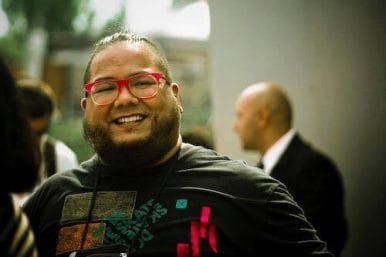
Dec 1, 2017 | Non categorizzato
 He was a graphic artist, who left his mark. He had a preference for masters such as Michelangelo and Gaudì, and was precociously talented in free hand. He created his own personal style based on his knowledge of the grand masters from the past. Emmanuel, who was known to everyone as Noel, worked closely with the young people from his city, bringing his brightness, inventiveness and creativity the preparations of the 2018 Genfest that will bring together 10,000 young people from around the world. On September 2nd he fell asleep and never woke up, due to sleep apnea. More than an grown up, he was considered a peer by the teenagers and young people from the Focolare Movement in the Philippines who are now counting on his help to carry on. Grace, Paul, Lela, Paula, Edith and other friends of his write. “He gave of himself without holding back and without expecting anything back. Always on the move from when he was a small child. At the age of two he attended his first Mariapolis and climbed the walls even during the meetings.” He was generous by nature. At the age of six he had given away a pair of shoes that had just been bought for him to a clothing drive for the victims of a wildfire that had devastated a certain region. When he was asked why he did that, he replied: “I saw Jesus in those people.” During his early school years Noel met a lot of difficulty. When a doctor discovered the medical cause – a problem with his eyesight – Noel candidly confessed that he had never told his parents because he didn’t want to worry them. His family moved to another location, and Noel and his brother placed a poster on the front door, “Friends Wanted.” Then they went knocking on the doors of their neighbours, trying not to be too pushy. As an adult Noel was very esteemed by his colleagues and employers. He was simple-hearted and sociable, but also trustworthy and precise, respectful of work hours. He was forgiven when, because of a disorder he suffered from during the night hours, if he sometimes suddenly fell off to sleep and spilled his coffee on the keyboard of the computer. He was always available for the projects of the Focolare youth. Any time they needed a drawing or a project, he was always willing to place his talent at their disposal. He was the drummer for a Gen band from the time he was a boy. He certainly wasn’t the best drummer on the square and, when he was there, the band never worried too much about being perfect, but only about playing with their hearts. Agnes, from the band, recalls how, for him, the “togetherness” was what mattered and not so much making an appearance. He put the same attention into his relationships with people. Noel arrived in Loppiano, Italy, for the Gen School in 2004. He was one of the few that had a driver’s license and became the driver for everyone, even at night when needed after a long day of work. He became a point of reference for many young people when he went back to his own country. Whether or not he realized it, he encouraged them and motivated them not to give up, but to persevere, to hope and follow God. “When it comes to love,” he would often say, “you need to give everything, especially when you’re able to give it.” Noel was always at his mother’s side, protective of his sisters and close to his brother even when he left the country. He never wanted to see unhappy people around him. A friend, teacher and gentle giant. A person who’s left his mark. That’s Noel for us. He was 38 years old, but he didn’t want to get old. Now he’ll be forever young.”
He was a graphic artist, who left his mark. He had a preference for masters such as Michelangelo and Gaudì, and was precociously talented in free hand. He created his own personal style based on his knowledge of the grand masters from the past. Emmanuel, who was known to everyone as Noel, worked closely with the young people from his city, bringing his brightness, inventiveness and creativity the preparations of the 2018 Genfest that will bring together 10,000 young people from around the world. On September 2nd he fell asleep and never woke up, due to sleep apnea. More than an grown up, he was considered a peer by the teenagers and young people from the Focolare Movement in the Philippines who are now counting on his help to carry on. Grace, Paul, Lela, Paula, Edith and other friends of his write. “He gave of himself without holding back and without expecting anything back. Always on the move from when he was a small child. At the age of two he attended his first Mariapolis and climbed the walls even during the meetings.” He was generous by nature. At the age of six he had given away a pair of shoes that had just been bought for him to a clothing drive for the victims of a wildfire that had devastated a certain region. When he was asked why he did that, he replied: “I saw Jesus in those people.” During his early school years Noel met a lot of difficulty. When a doctor discovered the medical cause – a problem with his eyesight – Noel candidly confessed that he had never told his parents because he didn’t want to worry them. His family moved to another location, and Noel and his brother placed a poster on the front door, “Friends Wanted.” Then they went knocking on the doors of their neighbours, trying not to be too pushy. As an adult Noel was very esteemed by his colleagues and employers. He was simple-hearted and sociable, but also trustworthy and precise, respectful of work hours. He was forgiven when, because of a disorder he suffered from during the night hours, if he sometimes suddenly fell off to sleep and spilled his coffee on the keyboard of the computer. He was always available for the projects of the Focolare youth. Any time they needed a drawing or a project, he was always willing to place his talent at their disposal. He was the drummer for a Gen band from the time he was a boy. He certainly wasn’t the best drummer on the square and, when he was there, the band never worried too much about being perfect, but only about playing with their hearts. Agnes, from the band, recalls how, for him, the “togetherness” was what mattered and not so much making an appearance. He put the same attention into his relationships with people. Noel arrived in Loppiano, Italy, for the Gen School in 2004. He was one of the few that had a driver’s license and became the driver for everyone, even at night when needed after a long day of work. He became a point of reference for many young people when he went back to his own country. Whether or not he realized it, he encouraged them and motivated them not to give up, but to persevere, to hope and follow God. “When it comes to love,” he would often say, “you need to give everything, especially when you’re able to give it.” Noel was always at his mother’s side, protective of his sisters and close to his brother even when he left the country. He never wanted to see unhappy people around him. A friend, teacher and gentle giant. A person who’s left his mark. That’s Noel for us. He was 38 years old, but he didn’t want to get old. Now he’ll be forever young.”

 Seventeen sustainable development goals have been identified to be achieved by 2030. They are contained in the UN Agenda approved by the 193 UN member states. “Zero Hunger,” which is at the centre of an agreement signed in 2012 during a United Nations Conference in Rio de Janeiro, aims to free the world from hunger. In response to a request for collaboration sent by the United Nation’s agency, the young people and teenagers of the Focolare Movement decided to step onto the field alongside the FAO, in raising awareness among the generation that we hope will see world hunger defeated. World hunger has been on the rise again for more than a decade. It was recently reported on by the Annual United Nations Report of food safety and nutrition in the world (2017). In 2016, around 815 million people (38 million more than the year before), that is, 11% of the world population, was not sufficiently nourished. Around 155 million children under the age of five are underdeveloped (too short for their age), while 52 million suffer from chronic hunger, which means that their weight is not adequate to their height.
Seventeen sustainable development goals have been identified to be achieved by 2030. They are contained in the UN Agenda approved by the 193 UN member states. “Zero Hunger,” which is at the centre of an agreement signed in 2012 during a United Nations Conference in Rio de Janeiro, aims to free the world from hunger. In response to a request for collaboration sent by the United Nation’s agency, the young people and teenagers of the Focolare Movement decided to step onto the field alongside the FAO, in raising awareness among the generation that we hope will see world hunger defeated. World hunger has been on the rise again for more than a decade. It was recently reported on by the Annual United Nations Report of food safety and nutrition in the world (2017). In 2016, around 815 million people (38 million more than the year before), that is, 11% of the world population, was not sufficiently nourished. Around 155 million children under the age of five are underdeveloped (too short for their age), while 52 million suffer from chronic hunger, which means that their weight is not adequate to their height.  At the same time, because of a lack of healthy nourishment, 600 million people (including 41 million children) suffer from obesity, which is another face of malnutrition. The Report identified armed conflicts as the main cause of the migrations and of the shocks linked to climate change, as several of the key factors of the re-escalation of hunger and the many forms of malnutrition. Freeing the world of hunger will require urgent measures and decisions in favour of more sustainable lifestyles – from the consumer society to a change of course in international politics. But first it requires a stronger awareness and change in personal relationships. This is the message that the Focolare’s Teens for Unity and Youth for a United World have been spreading since last year along with several of their global-level projects: the need for study and becoming aware of the root causes of the problem; observing and monitoring the situation at the local level and involving as many young people, teenagers and associations as possible in: communicating and sharing experiences of working for the poor in their own local environments, for a more sober lifestyle, for dialogue, peace, the environment, welcoming immigrants, and, finally, their proposal to hold world-wide celebrations on the day chosen by the United Nations to be dedicated to the topic of nutrition (October 16).
At the same time, because of a lack of healthy nourishment, 600 million people (including 41 million children) suffer from obesity, which is another face of malnutrition. The Report identified armed conflicts as the main cause of the migrations and of the shocks linked to climate change, as several of the key factors of the re-escalation of hunger and the many forms of malnutrition. Freeing the world of hunger will require urgent measures and decisions in favour of more sustainable lifestyles – from the consumer society to a change of course in international politics. But first it requires a stronger awareness and change in personal relationships. This is the message that the Focolare’s Teens for Unity and Youth for a United World have been spreading since last year along with several of their global-level projects: the need for study and becoming aware of the root causes of the problem; observing and monitoring the situation at the local level and involving as many young people, teenagers and associations as possible in: communicating and sharing experiences of working for the poor in their own local environments, for a more sober lifestyle, for dialogue, peace, the environment, welcoming immigrants, and, finally, their proposal to hold world-wide celebrations on the day chosen by the United Nations to be dedicated to the topic of nutrition (October 16).  #ZeroHunger is now a regular feature of the Teens Magazine, published by Città Nuova in collaboration with the New Families Association, United World Association and the New Humanity Movement. The 2018 March-April edition will be dedicate to this topic. “What a thrill for our delegation,” write the teenagers on the editorial board, “to go into the headquarters of the FAO in Rome. Let’s get started right now so that our generation will truly be the first #GenerationZeroHunger. Teens Magazine will continue to follow this fascinating worldwide project.” The calendar shows April as the month for the publication of the Commitment Statement of the Teens for Unity, which was drawn up by teenagers from eleven countries. In May, the annual events for “United World Week” and “Run4Unity” will be entirely devoted to the topic. In June, a group of 600 children and teenagers (ages 9-12), attending an international congress of the Focolare Movement, will be the guests of the FAO for a morning of discussion and sharing on the topic. Finally, in the month of July, as part of the “United World Project” at Genfest 2018, a forum will be held on the theme #GenerationZeroHunger with the participation of the FAO. Chiara Favotti
#ZeroHunger is now a regular feature of the Teens Magazine, published by Città Nuova in collaboration with the New Families Association, United World Association and the New Humanity Movement. The 2018 March-April edition will be dedicate to this topic. “What a thrill for our delegation,” write the teenagers on the editorial board, “to go into the headquarters of the FAO in Rome. Let’s get started right now so that our generation will truly be the first #GenerationZeroHunger. Teens Magazine will continue to follow this fascinating worldwide project.” The calendar shows April as the month for the publication of the Commitment Statement of the Teens for Unity, which was drawn up by teenagers from eleven countries. In May, the annual events for “United World Week” and “Run4Unity” will be entirely devoted to the topic. In June, a group of 600 children and teenagers (ages 9-12), attending an international congress of the Focolare Movement, will be the guests of the FAO for a morning of discussion and sharing on the topic. Finally, in the month of July, as part of the “United World Project” at Genfest 2018, a forum will be held on the theme #GenerationZeroHunger with the participation of the FAO. Chiara Favotti

 “Breaking Rays” is a play on the words “Breaking News” which are used to describe the interruption of some latest sensational news story. The sensational news this time was a project for the promotion of fraternity and a group of young communication workers who, with passion and skill, are stepping up to produce some maximum results. Breaking Rays aims at building an international network where experiences inspired by the charism of the Focolare Movement can come out of isolation and “break” onto the global scene, creating a widespread domino effect in other communities. Co-financed by the European Comission through the Erasmus+ and promoted by the international
“Breaking Rays” is a play on the words “Breaking News” which are used to describe the interruption of some latest sensational news story. The sensational news this time was a project for the promotion of fraternity and a group of young communication workers who, with passion and skill, are stepping up to produce some maximum results. Breaking Rays aims at building an international network where experiences inspired by the charism of the Focolare Movement can come out of isolation and “break” onto the global scene, creating a widespread domino effect in other communities. Co-financed by the European Comission through the Erasmus+ and promoted by the international 


